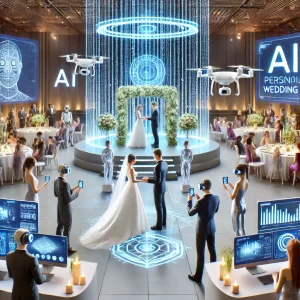
The Role of AI in Modern Event Planning
Artificial Intelligence (AI) is revolutionizing event planning by automating tasks, enhancing efficiency, and personalizing experiences. AI-powered chatbots assist with guest inquiries, while smart algorithms optimize budgeting and vendor selection. Virtual and augmented reality help visualize venues and setups before finalizing details. AI-driven data analytics provide insights into attendee preferences, ensuring tailored experiences. Automated scheduling, facial recognition for check-ins, and real-time event monitoring further streamline operations. From corporate conferences to large-scale weddings, AI is reshaping how events are managed, making them more seamless, cost-effective, and engaging. Embracing AI in event planning ensures innovation, precision, and a hassle-free experience.
The wedding industry is undergoing a massive transformation with the rise of artificial intelligence (AI) and advanced technology. By 2030, smart weddings will be the norm, incorporating automation, virtual reality, AI-driven planning tools, and sustainable solutions. From personalized experiences to efficient event management, technology is reshaping how couples and planners approach weddings.
This blog explores the role of AI and technology in future weddings, detailing how innovations will enhance convenience, personalization, and efficiency.
1. AI-Powered Wedding Planning
AI is revolutionizing wedding planning by offering smart tools that automate tasks, improve decision-making, and provide personalized recommendations.
a) AI Chatbots and Virtual Assistants
AI chatbots assist couples by answering queries, providing planning checklists, and suggesting vendors based on preferences. Virtual assistants like Chat GPT help plan weddings, offering recommendations for themes, venues, and timelines.
b) Smart Budgeting Tools
AI-driven budgeting tools analyze expenses and suggest cost-effective alternatives. Machine learning algorithms can track spending, predict cost fluctuations, and offer financial insights.
c) AI-Powered Vendor Matching
Platforms using AI match couples with the best vendors based on preferences, budget, and style. These tools analyze reviews, location, and past performances to offer the best options.
2. Virtual & Augmented Reality for Wedding Planning
Virtual and augmented reality (VR/AR) will revolutionize how couples visualize and experience their wedding before the actual event.
a) Virtual Venue Tours
Instead of physically visiting multiple venues, couples can use VR headsets to explore wedding venues from the comfort of their homes. This saves time and allows international couples to make informed decisions remotely.
b) AR for Wedding Dress Shopping
Augmented reality allows brides and grooms to try on wedding attire virtually before purchasing. AI-based AR applications will showcase how outfits look from different angles and in different lighting conditions.
c) VR Wedding Invitations
Instead of traditional paper invites, digital VR invitations will immerse guests in a virtual experience showcasing the couple’s love story, event details, and interactive RSVP options.
3. AI-Enhanced Personalization & Guest Experience
AI and data analytics will enable hyper-personalized weddings, tailoring experiences for couples and guests.
a) AI-Generated Wedding Themes & Decor
AI tools analyze trends, preferences, and themes to generate decor ideas, color palettes, and floral arrangements. AI-powered design platforms like Canva and Adobe Sensei will help customize event aesthetics effortlessly.
b) Smart Seating Arrangements
AI algorithms can optimize seating plans based on relationships, personalities, and past interactions, ensuring guests are seated comfortably and socially engaged.
c) AI-Powered Music & Entertainment
Smart DJ systems and AI-powered playlists will analyze guest preferences, adjust music in real-time, and create a lively atmosphere. AI-generated live performances using holographic technology may also become popular.
4. Smart Catering & Food Technology
Technology is also transforming catering, ensuring precision, sustainability, and personalization in food services.
a) AI-Designed Menus
AI-powered platforms analyze guests’ dietary preferences and suggest customized menu options. Smart catering ensures all guests, including those with allergies or specific preferences, have suitable meal options.
b) Smart Food Waste Management
AI tools track food consumption patterns, helping caterers minimize waste. Predictive analytics will optimize ingredient sourcing and portion control, leading to more sustainable weddings.
c) Robot & Automated Bartenders
Future weddings may feature robotic bartenders that mix and serve cocktails based on guest preferences, ensuring a fun and efficient bar service.
5. Smart Wedding Photography & Videography
AI and automation are enhancing wedding photography and videography with advanced features.
a) AI-Enhanced Editing Tools
AI-powered editing software like Adobe Sensei automatically enhances photos, corrects lighting, and applies filters tailored to the wedding’s theme.
b) Drone Photography & Live Streaming
Drones capture stunning aerial shots, while AI-driven live streaming allows guests who cannot attend in person to experience the wedding in real-time.
c) AI-Powered Facial Recognition for Guest Albums
Smart photo album tools use facial recognition to categorize guests’ photos, allowing couples to quickly find and share moments with friends and family.
6. Blockchain & Smart Contracts for Wedding Planning
Blockchain technology will provide security, transparency, and efficiency in handling wedding contracts and transactions.
a) Smart Contracts for Vendor Payments
Blockchain-powered smart contracts ensure vendors are paid automatically upon task completion, reducing fraud and disputes.
b) Digital Identity for Guest Check-in
Blockchain-based identity verification simplifies guest registration and check-in processes, enhancing security and convenience.
c) Secure Wedding Gift Registries
Couples can use blockchain-powered gift registries to receive funds securely, avoiding duplicate gifts and ensuring smooth transactions.
7. Sustainability & Eco-Friendly Smart Weddings
Technology is enabling greener weddings with eco-friendly alternatives and sustainable event planning.
a) AI-Powered Sustainability Reports
AI tools analyze wedding carbon footprints and suggest ways to reduce waste, energy consumption, and environmental impact.
b) Digital Invitations & Paperless Planning
E-invitations, digital RSVPs, and online wedding planning tools reduce paper usage and promote sustainability.
c) Smart Energy Management
Smart lighting and energy-efficient setups reduce power consumption during weddings, making them more environmentally friendly.
8. The Future of AI-Powered Honeymoons
AI and technology will not only transform wedding planning but also enhance post-wedding experiences.
a) AI-Personalized Honeymoon Planning
AI travel assistants suggest honeymoon destinations based on the couple’s interests, budget, and weather preferences.
b) Virtual Honeymoon Previews
VR travel previews allow couples to explore potential honeymoon locations before booking, ensuring a tailored experience.
c) Smart Luggage & Travel Assistance
AI-powered smart luggage with tracking, weight sensors, and automated packing suggestions will simplify travel logistics for honeymooners.
Conclusion
Smart weddings in 2030 will be highly efficient, personalized, and technology-driven, enhancing every aspect of wedding planning and execution. AI, VR, blockchain, and sustainability practices will redefine how couples and event planners approach weddings. With AI-powered vendor matching, VR venue tours, smart catering, and blockchain-based contracts, weddings will be more seamless, enjoyable, and eco-friendly than ever before.
For event planners and couples, embracing these innovations will lead to stress-free, cost-effective, and memorable celebrations. The future of weddings is here—smarter, greener, and more immersive than ever!
Subscribe to our newsletter!
More from our blog
See all postsRecent Posts
- How Indian Families Celebrate Anniversaries in Style May 28, 2025
- Rama Navami 2025: Planning a Traditional Celebration April 7, 2025
- Event Management of Maha Kumbh Mela 2025: A Grand Organizational Marvel March 26, 2025

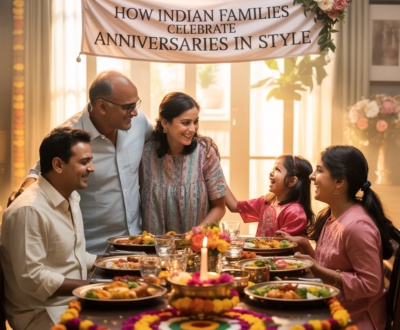
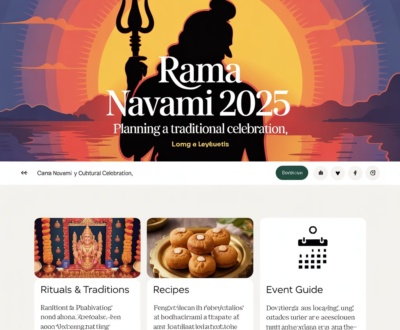

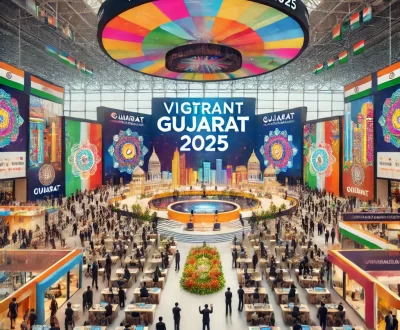
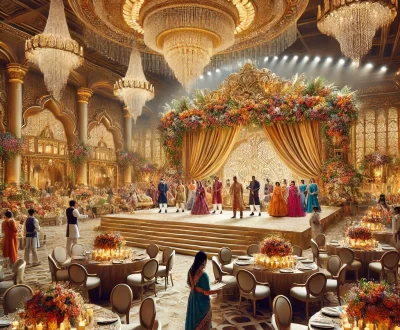
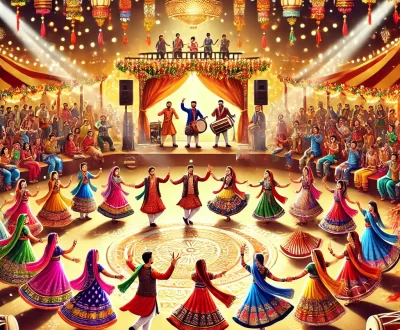
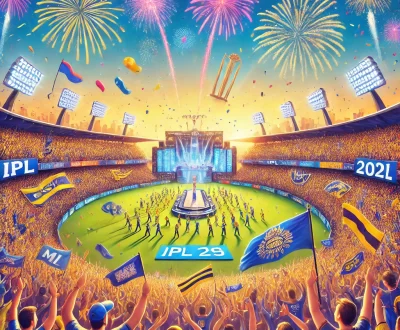
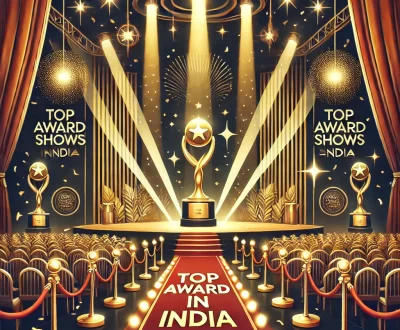
Pingback: Rama Navami 2025: Planning a Traditional Celebrations- Liferecall
Pingback: Social media in event planning- Liferecall